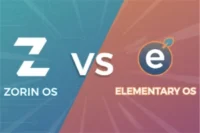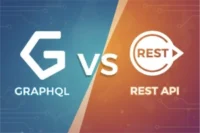Cloud Engineer vs DevOps Engineer: Key Differences
Published: 10 Apr 2025
In the tech world, two roles sometimes confuse people Cloud Engineer and DevOps Engineer. Both are important for building and running software systems, but they focus on different things. A Cloud Engineer works with cloud platforms like AWS, Azure, or Google Cloud to build and manage cloud-based infrastructure.
A DevOps Engineer helps developers and IT teams work better together by automating tasks and making software updates smoother and faster.

Understanding their unique roles can help you decide which career or expert your project needs.
DevOps Engineer vs Cloud Engineer: Key Comparison
Here’s a detailed Comparison of DevOps vs Cloud Engineer to choose best career:
1. Role and Focus
These professionals have different job roles and areas of focus.
Cloud Engineer:
- Works mainly with cloud platforms like AWS or Azure.
- Sets up cloud services like storage, networking, and virtual machines.
- Focuses on designing cloud infrastructure.
- Helps businesses move from physical to cloud servers.
- Manages the overall performance of cloud systems.
DevOps Engineer:
- Focuses on automation and continuous delivery.
- Connects development and operations teams.
- Builds CI/CD pipelines to speed up updates.
- Manages tools for code versioning and testing.
- Works on system stability and faster deployments.
2. Tools and Technologies
Each role uses different tools depending on their tasks.
Cloud Engineer:
- Uses AWS, Microsoft Azure, and Google Cloud.
- Works with tools like Terraform or CloudFormation.
- Sets up firewalls, load balancers, and cloud storage.
- Uses monitoring tools like CloudWatch or Azure Monitor.
- Manages cloud-specific databases and services.
DevOps Engineer:
- Uses Jenkins, Git, Docker, and Kubernetes.
- Automates deployments and software testing.
- Works with scripting languages like Python or Bash.
- Uses Ansible, Puppet, or Chef for configuration management.
- Monitors applications using tools like Prometheus or Grafana.
3. Skills Required
Different skill sets are needed for each career path.
Cloud Engineer:
- Strong knowledge of cloud service providers.
- Understanding of networking and cloud security.
- Ability to design cloud architecture.
- Knowledge of virtualization and storage systems.
- Familiarity with cloud automation tools.
DevOps Engineer:
- Strong background in software development.
- Skills in automation and scripting.
- Knowledge of continuous integration and delivery.
- Familiar with server management and containerization.
- Problem-solving and teamwork skills.
4. Collaboration and Work Style
How they work with teams and others also varies.
Cloud Engineer:
- Works closely with architects and system administrators.
- Focuses more on cloud infrastructure than application code.
- Often works behind the scenes.
- Supports developers with cloud-based resources.
- Involved in long-term planning for cloud strategy.

DevOps Engineer:
- Bridges the gap between developers and IT teams.
- Encourages collaboration across departments.
- Works with Agile teams during the full development cycle.
- Has a faster-paced role with daily deployments.
- Solves problems as they happen in real time.
5. Responsibilities
The responsibilities of these engineers differ based on their focus.
Cloud Engineer:
- Designs, builds, and maintains cloud environments.
- Ensures security of cloud infrastructure.
- Helps teams migrate services to the cloud.
- Monitors cloud system performance.
- Plans for backup and disaster recovery.
DevOps Engineer:
- Builds CI/CD pipelines for quick code releases.
- Automates infrastructure and testing processes.
- Works with developers to improve software delivery.
- Handles server setups and deployments.
- Monitors and fixes issues in live environments.
6. Certifications
Certifications help validate skills in both roles.
Cloud Engineer:
- AWS Certified Solutions Architect.
- Microsoft Certified: Azure Solutions Architect.
- Google Cloud Certified: Cloud Engineer.
- CompTIA Cloud+.
- Cisco CCNA Cloud.
DevOps Engineer:
- AWS Certified DevOps Engineer.
- Microsoft Certified: DevOps Engineer Expert.
- Docker Certified Associate.
- Certified Kubernetes Administrator (CKA).
- HashiCorp Certified: Terraform Associate.
7. Career Paths and Opportunities
Each role offers exciting career growth.
Cloud Engineer:
- Can move up to become a Cloud Architect.
- High demand in businesses shifting to the cloud.
- Opportunities in cloud security and automation.
- Career stability due to cloud’s growing use.
- Works across industries like finance, health, and tech.
DevOps Engineer:
- Can grow into a Site Reliability Engineer (SRE).
- High demand in software and startup environments.
- Strong career path with roles in automation and performance.
- Opportunities to become DevOps consultants.
- Popular in agile-driven companies.
Quick Comparison Table: Cloud Engineer vs DevOps Engineer
Here’s a quick comparison table of Cloud Engineer vs DevOps Engineer.
| Feature | Cloud Engineer | DevOps Engineer |
| Main Focus | Cloud infrastructure | Automation & deployment |
| Tools Used | AWS, Azure, GCP, Terraform | Jenkins, Git, Docker, Kubernetes |
| Key Skills | Networking, cloud platforms | Scripting, CI/CD, automation |
| Collaboration Style | Works with architects/admins | Bridges dev and ops teams |
| Career Path | Cloud Architect, Cloud Consultant | Site Reliability Engineer, DevOps Lead |
Which Is Better: Cloud Engineer or DevOps Engineer?
It depends on your interests and career goals. If you enjoy building and managing cloud infrastructure, a Cloud Engineer role is a great choice. It’s ideal for those who like to work with servers, storage, and networking in cloud environments.
However, if you prefer working with developers, automating tasks, and speeding up software delivery, becoming a DevOps Engineer might be the better path. DevOps is ideal for fast-paced teams and software product companies.
Both careers are in high demand and can lead to high-paying jobs, so there’s no wrong choice—just the one that suits you best.
Conclusion
Cloud Engineers and DevOps Engineers play different but equally important roles in today’s tech world. Cloud Engineers focus on building and maintaining cloud systems, while DevOps Engineers help deliver software faster by automating processes and improving teamwork.
Choosing between the two depends on what kind of work you enjoy—working with cloud infrastructure or improving software delivery workflows. Either way, both offer rewarding career paths and exciting opportunities in the growing world of technology.
FAQs about Cloud Engineer and DevOps Engineer
Here are some of the most FAQs related to DevOps Engineer vs Cloud Engineer:
Yes, with some added skills in automation and CI/CD tools, a Cloud Engineer can shift to a DevOps role.
Both roles are in demand, but DevOps Engineers are especially needed in fast-paced software teams and startups.
DevOps Engineers often need strong coding and scripting skills, while Cloud Engineers need basic scripting knowledge.
It takes time to learn cloud platforms, but with practice and certification, it’s a great entry into tech.
Yes, DevOps Engineers sometime deploy and manage applications in cloud environments using cloud services.
Salaries vary, but DevOps Engineers often earn slightly more due to their combined development and operations skills.
Absolutely! Many professionals combine both skill sets for flexible career opportunities.
Top tools include AWS, Azure, GCP, Terraform, and Ansible for managing cloud infrastructure.
DevOps tools include Jenkins, GitHub, Docker, Kubernetes, and CI/CD pipelines.
Yes! Both roles are great for beginners with a passion for learning and solving tech problems.

- Be Respectful
- Stay Relevant
- Stay Positive
- True Feedback
- Encourage Discussion
- Avoid Spamming
- No Fake News
- Don't Copy-Paste
- No Personal Attacks

- Be Respectful
- Stay Relevant
- Stay Positive
- True Feedback
- Encourage Discussion
- Avoid Spamming
- No Fake News
- Don't Copy-Paste
- No Personal Attacks





